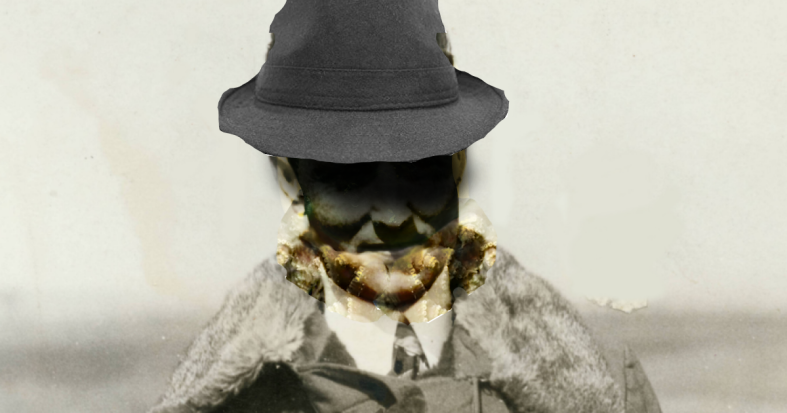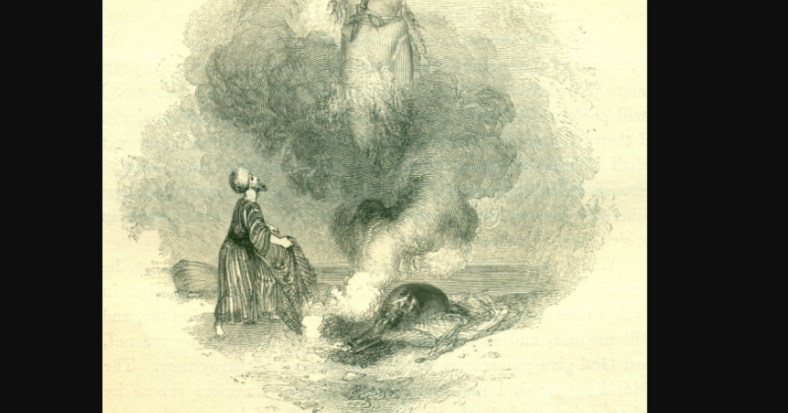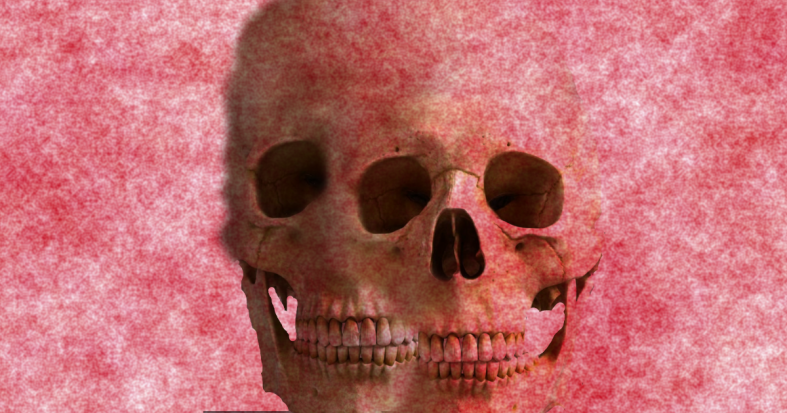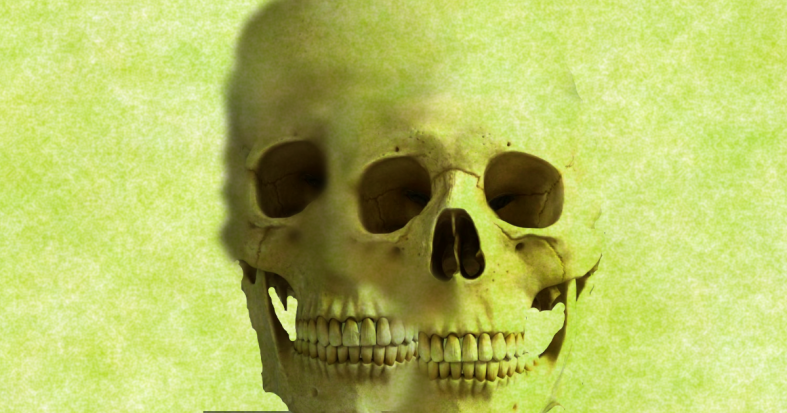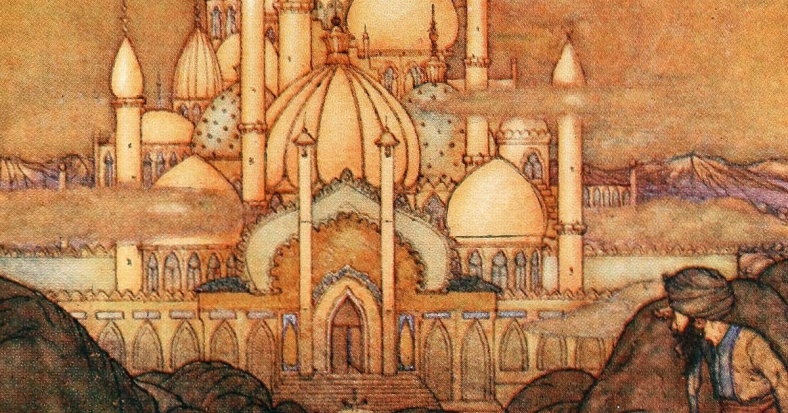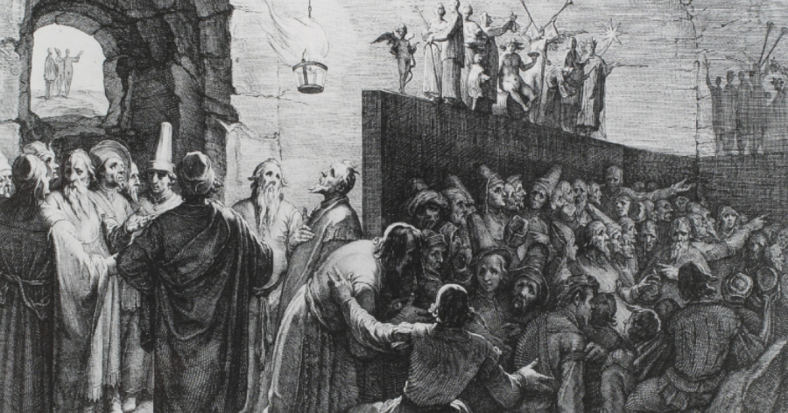This Week’s Prompt:61. A terrible pilgrimage to seek the nighted throne of the far daemon-sultan Azathoth.
The Prior Research:Pilgrimages
There is an old road that runs beyond the world, to a most holy land. Beneath the two outstretched arms of giants, frozen for hubris long ago and now bleeding basalt in perpetuity, beyond the watch posts of the Crimson Kings who bear swords that sing, past the walls of stars that stand sentry against the crawling things. The road is worn, and broken in parts. Pavement and stones come and go, stone incarnations of an irregular heart beat. Drops of the old pulse still pass, following it past the end of the world to a most holy land.
Men and women who travel that road rarely come to it’s close. Most grow tired of their searching, abandon it for a highway, forming clots of wooden huts that grew sometimes into small towns. Others perished of over belief, forgetting their still mortal needs. Their skulls, if they were holy in death, grew into strange shapes. Some gained eyes after death, some horns, some became pallid growths in the earth, morticians moss on Mother Earth.

And some found themselves in a situation like the sage Gilmora, in a cage of well made iron, bereft of his votive offerings of brass and his occult jade tools currently picking the flesh out of Negoi’s teeth. Negoi sat between the other two bandits, a mountain of muscle, with a necklace of relic fingers and tokens strung like beads. Occasionally he stirred the bronze pot, carved with divine faces, with the staff of some less fortunate traveller.
“So, what’s the haul with this one?” He asked the fellow to his right, who had cracked open the wooden case Gilmora had born with him.
“Not much, not much food anyway. Some skull thats gone and turned green.” Dozji said, holding the skull of St. Jian in one hand, turning it over and pulling out a cork seal. “ Dust in side. Smells like rotten eggs.”
“That’d be sulfur. I read once, stuff burns like fire, stings awful. Don’t know why you’d put it in a skull.” The third bandit, Olmoi with his beady red eyes said, looking up from the scrolls he had hanging from the branches. The letters on some were small square blocks unknown to Gilmora, while a codex of great worth was torn at the trees base, pages used to feed the fire of boiling flesh and fat.
“Maybe you throw it and the skull breaks on’em!” Dozji said, resealing the skull. “What do you say, little pig? Or is this how you lot season your food.”
“If a man is what he consumes, the ashes of a saint and sulfur can only do you good, friend.” Glimora said, folding his legs.

Olmoi stopped Dozji’s hand before he poured the ash into the stew, shaking his head and quietly explaining that he would in fact perish, and kill all of them while he was at it. The three of them split the soup without any more of the saintly seasoning. Drinking out of the meditation bowls thank rang slightly when they hit the gold with their false teeth, making strange ringing for seconds before stoping at their lips. The conversation then went on to Glimora.
“Monks don’t fetch as much as they used, but I’m not sure if he’s worth eating…” Dozji muttered.
“Might be holy enough, we could hack him up. Polish his bones, sell him off as relics…” Negoi said, looking up from his bowl, turning it over so the scraps of less edible meat fell into the fire, crackling for a moment as the fat caught flame.
“If their relics, shouldn’t we just keep’em?” Olmoi said, frowning. “I mean, can’t monks tell what ain’t relics?”
“Yeah, but not fast. We can ditch them for another road or something.”
Gilmora sat serenly through the conversation, his mind’s eye wandering over the hills to see if that etheral city might be spotted. As the conversation continued, his invisilbe pupil continued on, settling in the barren wastes for a time. When he was done, he unfolded his legs and stood, walking to the edge of his cage.
“Ah, well, have an idea of where we should start?” Negoi said, messaging the finger bones and turning up from the conversation. Gilmora said nothing, walking to the front of the cage. His bones bent wax like round the iron rods, muscle and sinew folding out to make more room, before stitching himself back together on the other end with thin filaments of silk woven by unseen spiders.
“I knew he was holy.” Negoi murmured, before reaching for the sacrifical knife at his side and lunging at the escapd man, and running him through. Gilmora politely pushed the man back onto the fire, where the fat burned and scalled through the clothes of long dead pilgimrs, and the oil from the relics along Negoi’s neck burned bright.
Olmoi and Dozji merely stared as the pilgrim Gilmora went on his way, marching measuredly out of the camp and into the woods, back to the shimmering holy road. Olmoi glanced at his terror stricken fellow, before going after the escapee.
Olmoi had never followed the Pilgrim Road past the blasted heaths and hills, where none had returned. Negoi had once, and told the younger bandit that to glimpse that land was the worst decision of his life, and set him against any such pilgrims searching for that holy of cities, where demons walked the streets unhindered.

Gilmora floated down the road then, barely touching the ground now. Olmoi heard distantly the song of a great beast, a deep siren sound of a whale as they drew near the iron hill. And there, for but a moment, in the indigo light of that place beyond the world, he saw the throne of Azathoth. The pulsating, squamous seprentine mass, grooves the size of buildings rising from the bulk as a mass of eyes and teeth stared down in all directions. At the center was a great maw, echoing outward with that song through fibrous teeth. Great was the yawning mass, an abyss of flesh with fingers reaching out on the wind.
And then Gilmora was gone, leaving not but his skull behind, smoke and dust swirling into the embrace of the demon king’s throne. The carnivorous cavern lasted but a moment more, a dread and terrible light shining within, beckoning like a beacon at sea. And then, it too was gone. Olmoi stared for a moment in terror, before collecting the skull of Glimora. Out of it’s foramen magnum dripped a sweet smelling liquid, like honey. But it’s touch burned Olimoi’s fingers. He flipped it in his hands and carefully carried it back to mortal lands. But that is a story for another time.
This was a rushed story, to be honest. My first few drafts were boring, tiresome, and had nothing happening. This is the result rewrite that tried using the pilgrimage as a spring board, and expanding into actually including characters. Next time, however, we will return to an old well of classic horror: Burial alive.
If you’d like to support the Society, receive more stories or research, or are feeling generous, please check out our Patreon here.





